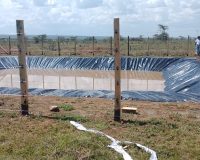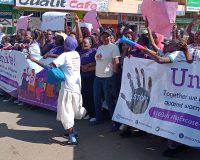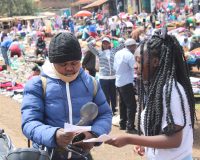Lucy was identified through a distress call from County General Hospital, which requested the programme’s assessment of the girl and potential provision of support. The girl had remained in the hospital for 12 hours, during which a series of tests were conducted. However, none of the tests yielded any conclusive results. The cause of her fainting was determined to be general body weakness, which had manifested as she was enroute to her school. The attending physician noted that the Lucy had gone without food for several days. On the day in question, she was returning to school after a three-week absence due to unpaid tuition.
A visit to her home revealed that she had three younger siblings and she had a child of her own aged three. Her father had passed away six years prior, and her mother was experiencing health issues. As the eldest child in the family, she was responsible for providing for the basic needs of the family, primarily through casual employment. Following her completion of the eighth grade, she was employed as a domestic worker. After a period of time, she became pregnant and gave birth to a male infant.
The programme, in conjunction with the volunteers, facilitated the formation of a community support network around the family unit, thereby enabling them to meet their basic needs. The Member of County Assembly in her area took the responsibility of enrolling her in secondary school. The school fee was consistently covered by a government bursary, which proved to be insufficient. This resulted in a significant accumulation of unpaid fees over time. The programme visited the school and presented her case to the school administration. The school agreed to retain her since she was in Form Four. She was added to the list of students requiring financial assistance, which entitled her to a free feeding program and ensured that her personal effects were provided for. The teaching staff at the school collectively agreed to provide financial and in-kind assistance to her family. The hospital addressed the matter of her ailing mother and secured a waiver for her medication. Some members of the business community mobilized resources and provided assistance to the family, including basic necessities such as clothing and food. The program provided partial financial assistance for the girl’s education.
The programme collaborated with the livelihood department to ascertain the feasibility of supporting Mama Lucy with an income generating project. Through the project, the family was now able to meet some of their basic needs, and the programme, in collaboration with the volunteers, maintained close contact with all individuals associated with the family, ensuring the continuity of support.





